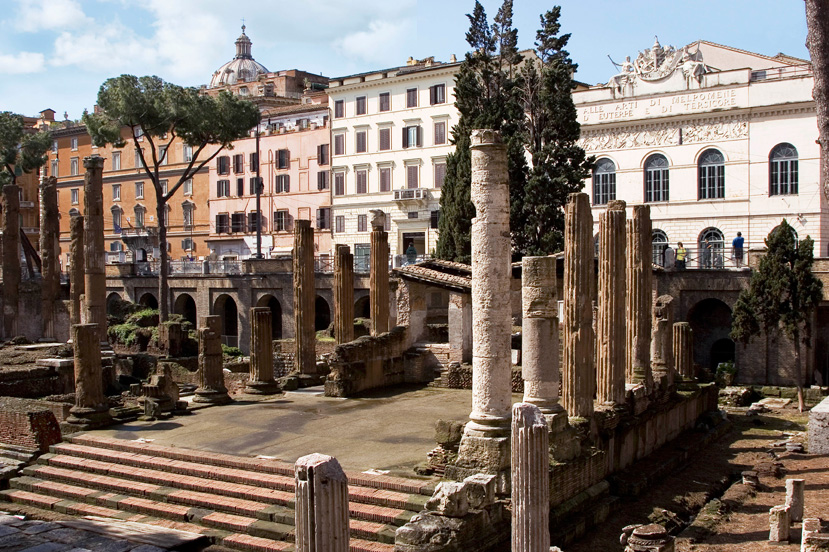June 9 - June 12 , 2016
The Arts of Time: Relational Psychoanalysis and Forms of Vitality in Clinical Process
Teatro Argentina
Rome, Italy
updated January 21, 2016 (scorrere verso il basso per l’italiano)
We are pleased to update you about the Rome conference.
We received many proposals (around 150 including panels and papers) the International and the Local Committee evaluated them and we are going to finalize the conference program, it will be ready beginning of February, registrations will be open by mid February.
In the meanwhile if you need any help for hotels in Rome you can contact Bluevents (our secretary company) at the following address: iarpp2016@bluevents.it
Looking very much forward to seeing you in Rome
Best Regards
Susanna Federici, Gianni Nebbiosi
Conference Co-Chairs

Conference Co-Chairs:
Susanna Federici-Nebbiosi PhD, Gianni Nebbiosi PhD
International Steering Committee:
Alejandro Avila Espada PhD, Sharon Beiman PhD, Cathy
Hicks PhD, Juan Francisco Jordan MD, Hazel Ipp PhD, Rina Lazar PhD, Chana Ullman PhD
Local Committee:
Marina Amore PhD, Fabia Eleonora Banella PsyD, Sara Biondi PsyD,
Margarita Kahn PhD, Luca Migliaccio PsyD, Carmine Schettini MD, Maria Tammone MD
THE ARTS OF TIME.
RELATIONAL PSYCHOANALYSIS AND FORMS OF VITALITY
IN CLINICAL PROCESS
In these recent years psychoanalysis has been dealing more and more with the exploration of the therapeutic process and the implicit dimension of the clinical exchange. A relational perspective on the clinical process emphasizes how it is a co-constructed result of a dyad engaged in a deep and creative exploration of the inner vicissitudes of the patient and the vicissitudes of the dyad itself. In their daily work relational therapists are challenged to facilitate a kind of creative dimension in order to improve the meaning making process.
For eons the arts have placed at their core an interest in what today – in our field – we call “implicit” and have expanded a wisdom about the creative process that develops in time, between human beings, going beyond words and content. As Daniel Stern, Colwyn Trevarthen and many other authors have emphasized, these dimensions are fundamental to the interactional emergence of the mind.
Forms of vitality are those dynamic forms that permeate daily life, psychotherapy, and the arts. There is a time profile, a sense of time, that shapes the experience of vitality as it is created in the mind. Vitality means the capacity to live, grow, or develop; the capacity to endure, the capacity for the continuation of a meaningful existence.
We think that one of the challenges of contemporary psychoanalysis is to be open and see what it can learn from the arts by taking a new perspective on the way in which psychoanalysis has historically dealt with arts: not trying to explore psychoanalytically the aesthetic experience (or even worse “to analyze the artists”), but trying to explore the experience of clinical psychoanalysis using artistic ways of thinking. As we stress the correlation with the clinical interaction, we want to take into particular consideration those arts that express themselves in time – theater, music, dance, cinema, performative arts – but any reflection on how artistic non verbal aspects (e.g. the style in literature and poetry) can improve the wisdom of the clinical dialogue, is welcome.
This topic emerges quite naturally from the context of the city of Rome, that is in itself a living stratification of arts and times. To make this event even more unique, the Conference will be held at the Teatro Argentina, the most important theatre of Rome that is located at the core of the historical centre of the city.
Cari Soci IARPP,